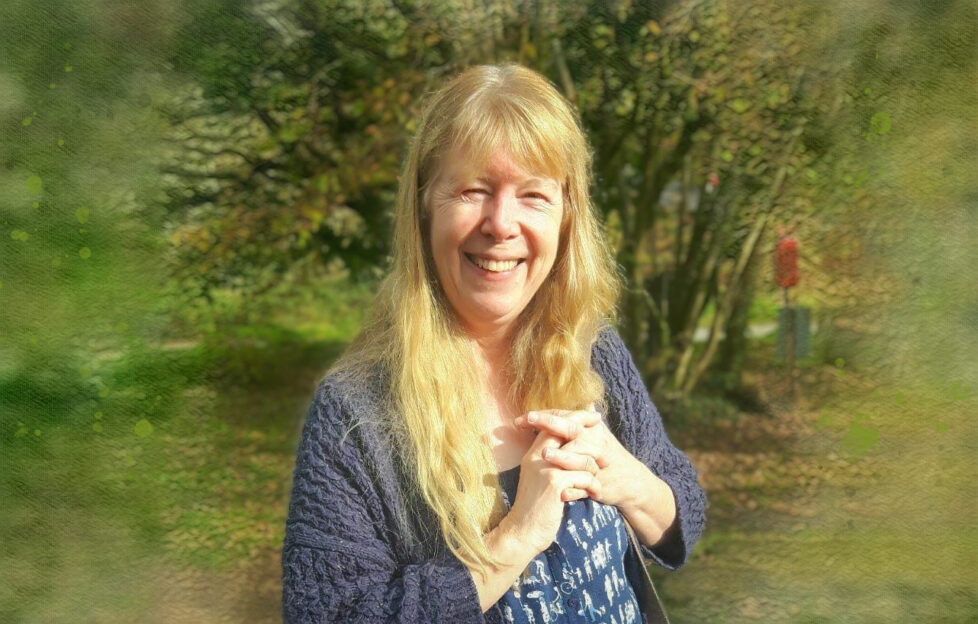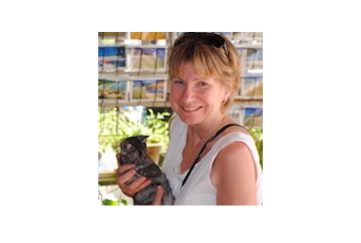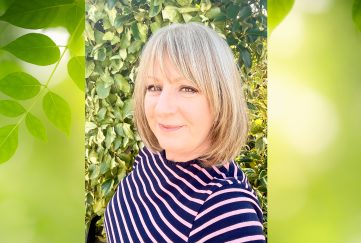Writer Of The Week: Sarah Batten

Our Writer Of The Week is Sarah Batten. Sarah’s historical serial, “The Legend Of Wychwood Manor”, begins in the June 11 issue.
You strike me as a natural serial writer. What is it about serials that appeals to you?
I think it’s the difference between a sketch and a painting – you can just add more colour and depth. I also like the fact that you don’t need to hurry to a conclusion. I do a lot of hurrying in my everyday life.
I enjoy adopting a more measured pace in my serial writing. This lets things marinate. I often finding that a new idea will be simmering away when I return to it.
Serials also allow you to go for the slow-burn. This helps develop characters and explore their motivations, building layer upon layer, which I find immensely satisfying.
It’s the same with serials on television. Short dramas are great, but you really invest emotionally in the characters that populate serials. You learn new things about them each week.
I’ve often read that writers find their characters sometimes go off into directions they never expected. I definitely found that in writing Wychwood – Lil in particular became feistier and more opinionated on every page!
Where did the idea come for Wychwood?
I used to live in Devon near a village called Beer, home to a famous smuggler called Jack Rattenbury. There were rumours that the manor house in Beer had a smuggling tunnel connected to the caves where contraband was hidden.
There was also a churchyard gravestone of a customs officer, who was murdered. This was the setting for my serial, or rather my version of that village because it’s not a carbon copy.
It was also great fun to go for a more Gothic feel and rack up the tension. I felt I should have had eerie organ music playing as a background soundtrack.
From start to finish, it’s an action-packed serial. Is it important to instil a sense of excitement and tension through your writing?
This is my first serial and I was worried I wouldn’t have the skills to sustain a story over six instalments, and then pull it all together with a satisfactory ending. Thus, I wrote the whole thing as a rough draft before sending in the first instalment for scrutiny.
I have to say, I wouldn’t recommend this approach as I ended up doing twice the work. I’d written too many instalments and had to condense those down – worse than trying to thread a camel through the eye of a needle, in my opinion.
I hadn’t also realised there had to be two main characters. Luckily, I love rewrites, and at least I knew where I was going with the story.
It is important for me to create excitement and tension. I love to do this by dropping hints and clues that only make sense later on in the story, leading readers through various twist and turns, often in completely the wrong direction. It’s far more absorbing than a crossword puzzle.
I think it’s important to have changes in pace, though. If a story is always at its highest pitch, it loses its edge. Action scenes come naturally as I like things to happen and tend to visualise my stories a lot, so they take on a bit of a film-like quality for me.
Trying to end each instalment with an exciting cliff-hanger ending is a real challenge that can occupy me for hours – or days!
For you, does writing come with any pressure?
It definitely does and I would love to spend much more time writing fiction. I have to meet deadlines in my ordinary work, so writing stories and serials, where you set your own pace, feels luxurious in comparison.
As I don’t have much time to write, it feels very special when I do. I often get up very early when I’m working on something as I prefer to write in blocks of time rather than odd snippets here and there. Around 5.30 a.m. is perfect as there are no distractions – but I can’t do it all the time or I get grumpy!
Which writers’ novels/stories do you like reading – any “Friend” favourites?
I love Barbara Kingsolver’s “The Poisonwood Bible” and Wilkie Collins’ “The Woman In White”, which again was a bit of an inspiration for Wychwood. I love the way he drip-feeds information.
Dorothy Sayers’ “Gaudy Night” and Anthony Doerrs’ “All The Light We Cannot See” are both beautifully written with intensely human characters.
I thought “The Glens Of Stone” by Roy Stewart was a gripping read in the “Friend” – great dialogue and a story that leaves you wanting more, which is the goal of every writer.
Notebook and pencil or laptop? Kitchen table or study? Blank wall or inspiring view?
I’m ashamed to say that I’m not hugely techie. Instead, I always start with notebook and a gel pen as I don’t seem to think so well working on a screen; that’s fine for editing. I also scribble down ideas for events or characters on scraps of paper, especially till receipts. I often get up in the night to make notes as I’ve learned through hard experience that I will probably have forgotten them by morning.
I used to write in a corner of our knocked-through kitchen, which wasn’t ideal as there was a constant stream of traffic passing through in search of hot drinks etc. But we’ve recently had a loft conversion, so I now have a table up there which is absolute bliss.
I can see the sky from my table, but nothing else. This is good for concentration, as before it was hard to resist the temptation to just do a spot of gardening.
What’s your one top tip for aspiring writers?
Picture your characters and get to know things like the colour of their eyes etc. Try to get deep into your characters’ heads. What makes them tick, and always add a surprising character trait or two that makes them more three-dimensional.
I also like to find pictures that look like my imagined characters. I saw a brilliant oil painting of Mrs Trevor by Sir John Lavery; a mysterious woman dressed in black who was a dead-ringer for Jocasta, one of the characters in “The Legend Of Wychwood Manor”.





